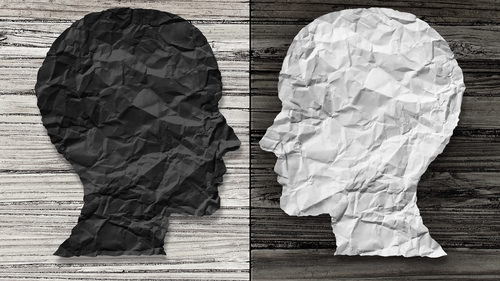Addiction, also known as substance use disorder, is a chronic mental health condition that is listed in the Diagnostic and Statistical Manual of Mental Disorders, Fifth Edition (DSM-5). It is characterized by repeated use of rewarding stimuli (e.g. abusing drugs and/ or alcohol) despite negative consequence. Bipolar disorder, previously referred to as manic depression, is a mental health condition that is also listed in the DSM-5. The Mayo Clinic explains that bipolar disorder “causes extreme mood swings that include emotional highs (mania or hypomania) and lows (depression).” According to the findings of a study published in the National Institute of Health (NIH), “forty-eight percent of people with bipolar II disorder had a substance use disorder, 39.2 percent had an alcohol use disorder, and twenty-one percent had a drug abuse or dependence diagnosis.” When an individual is diagnosed with substance use disorder and another mental health disorder (e.g. bipolar disorder) it is referred to as a dual diagnosis.
Risk Factors
There is no universal, scientific reason indicating to why an individual develops bipolar disorder and/ or substance use disorder. There are, however, several contributing risk factors that have been identified as increasing an individual’s susceptibility for developing bipolar disorder and substance use disorder, which include the following:
- Gender: bipolar disorder and addiction is more prevalent among young males than females, according to an article published in the journal Bipolar Disorder
- Family history: individual’s with close relatives (e.g. parent, sibling, grandparent, etc.) diagnosed with bipolar disorder and/ or substance use
- Brain Chemistry: individuals diagnosed with bipolar disorder and/ or substance use disorder have been reported to produce abnormal levels of certain neurotransmitters (e.g. dopamine, norepinephrine, serotonin) that affect vital functions (e.g. metabolism, sleep, appetite, mood, emotions, etc.)
An individual’s personal health history can also play a role in the development of addiction and bipolar disorder. It is important to note that not all individuals diagnosed with bipolar disorder will go on to develop an addiction, nor will every person diagnosed with substance use disorder be inevitably diagnosed with bipolar disorder.
How Are They Related?
Though bipolar disorder and substance use disorder are common co-morbid disorders, there is no simple explanation for why they often co-occur. Some researchers hypothesize that individuals diagnosed with bipolar disorder turn to drugs and/ or alcohol in attempt to self-medicate, in effort to alleviate some of the adverse symptoms that manifest with bipolar disorder. On the other hand, abusing drugs and/ or alcohol has been noted to awaken dormant mental health illnesses, including bipolar disorder. The relation between bipolar disorder and addiction is wholly dependent upon an individual and as such any possible explanation regarding the development of one or both mental health illnesses is variable.
For Information and Support
If you are concerned for yourself or a loved one in regards to substance abuse and/ or addiction we recommend reaching out for help as soon as possible. If left untreated, substance abuse can result in long lasting and potentially life-threatening consequences. Keep in mind: you are not alone! There is an entire network of professionals that are available to help and support you and your loved one throughout the recovery process. The earlier you seek support, the sooner your loved one can return to a happy, healthy, and fulfilling life.
Please do not hesitate to reach out with any questions regarding our specific program at Haven House Addiction Treatment and/ or general substance abuse and/ or addiction treatment related information. Our highly trained staff is readily available to discuss how we might best be able to help you and your loved one. We can be reached by phone at 424-258-6792. You are also welcome to contact anytime us via email at admissions@hhtxc.com.



